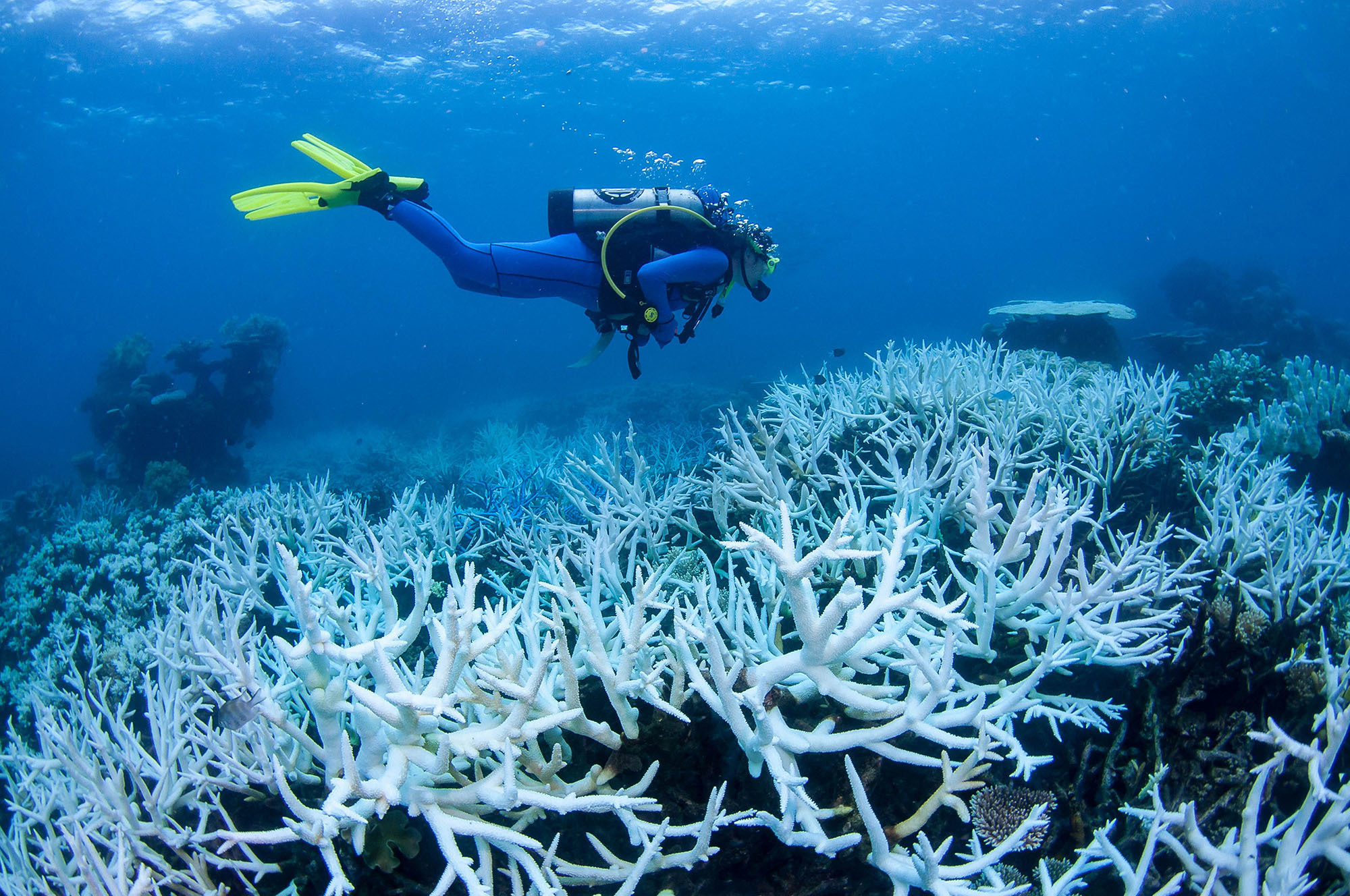Florida Heatwaves Push Coral Species to the Brink of Extinction
- bykrish rathore
- 25 October, 2025

The 2023 Florida heatwave has had devastating effects on marine life, leaving several coral species in the Florida Coral Reef — the world’s third-largest barrier reef — on the brink of extinction. Scientists describe it as one of the worst marine heat events ever recorded in the region, marking a grim milestone in the battle against climate change.
Ocean temperatures in parts of South Florida soared above 38°C (100°F) during the summer, causing widespread coral bleaching — a process where corals expel the algae (zooxanthellae) that give them color and nutrients. Without these symbiotic algae, corals starve and die, turning vast sections of the reef ghostly white.
According to marine biologists, the 2023 heatwave proved catastrophic for two major coral species native to the region:
Elkhorn coral (Acropora palmata)
Staghorn coral (Acropora cervicornis)
Both species are now classified as critically endangered, and experts fear their populations may not recover without urgent conservation measures.
The Florida Coral Reef, stretching roughly 360 miles along the state’s coast, supports thousands of marine organisms, protects shorelines from erosion, and sustains local fisheries and tourism industries. Its collapse could lead to far-reaching ecological and economic consequences.
Researchers from NOAA (National Oceanic and Atmospheric Administration) reported that more than 90% of monitored coral sites experienced significant bleaching, with some reefs experiencing near-total mortality. Even restoration projects — where scientists relocated coral fragments to cooler waters — saw limited success due to the persistent heat.
Climate experts link this unprecedented marine heatwave to global warming and El Niño conditions, which intensified ocean temperatures across the Atlantic. As greenhouse gas emissions continue to rise, scientists warn that such heatwaves will become more frequent and severe.
Environmental groups and local conservationists are calling for immediate action — including:
Expanding marine protected areas
Reducing coastal pollution and overfishing
Enhancing coral restoration technologies
Accelerating global climate mitigation efforts
Despite the grim outlook, there is still hope. Some resilient coral species have shown limited recovery in deeper, cooler waters. Marine scientists emphasize that protecting these surviving colonies could be vital for future reef restoration efforts.
The Florida heatwave serves as a stark reminder of climate change’s accelerating impact on ocean ecosystems. Unless swift action is taken to curb global emissions and protect marine habitats, the world may soon lose one of its most vital natural treasures — the vibrant coral reefs that sustain life beneath the waves.

Note: Content and images are for informational use only. For any concerns, contact us at info@rajasthaninews.com.
"इको-फ्रेंडली इनोवेश...
Related Post
Hot Categories
Recent News
Daily Newsletter
Get all the top stories from Blogs to keep track.







_1772465804.jpg)
_1772465408.jpg)
_1772464394.jpg)
_1772463878.jpg)
